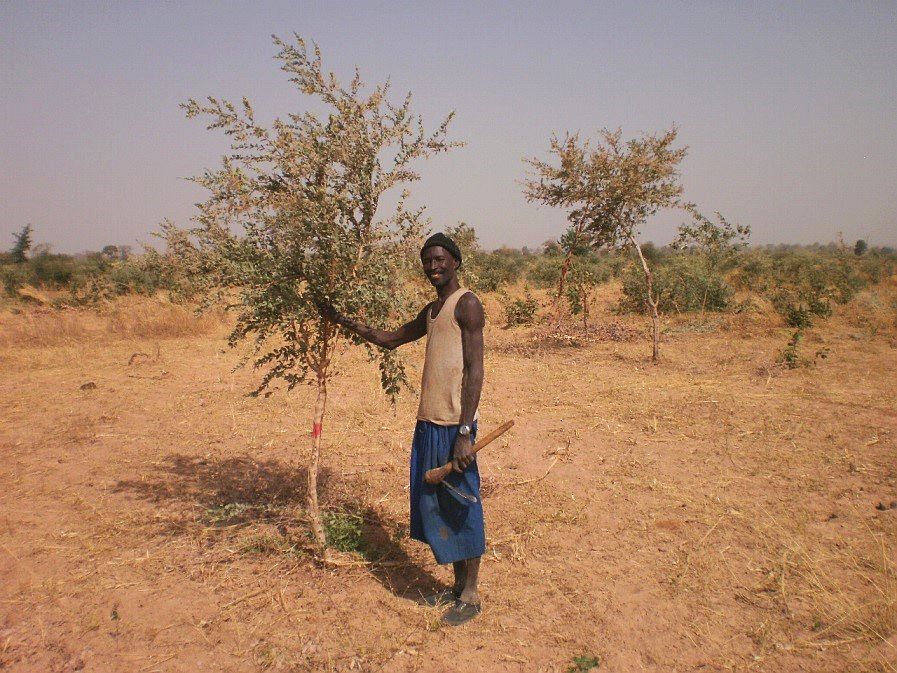
Greening our heritage
October 4, 2016
By Nasser Shomo, World Vision Zambia
Cultural Heritage
Every year, the Soli people of Chongwe district in Lusaka Province of Zambia gather at the Chakwela Makumbi ceremony. The name ‘Chakwela Makumbi’ means pulling the clouds and during this ceremony, Chieftainess Nkomeshya Mukamambo II blesses the seeds to be sown and prays to God for sufficient rainfall, so that the country can enjoy bumper yields at harvest time. The celebration happens once a year towards the end of October, and according to Zambian culture, is one of the last traditional rituals of the year.
This ceremony is where senior Chieftainess Mukamambo Nkomeshya II leads the nation and the Soli to pray to the living God for the rains. It is normally done annually in which our chief will lead all the Solis to ensure that we pray to God and bless the first seeds. According to the Soli culture, no one is expected to plant anything unless the chief blesses and signifies this.
Favorable climatic conditions led to the formation of the civilizations of the Egyptians, and similarly, unfavorable changes in climate led to the downfall of many other cultures. Not only did climate determine the rise and fall of empires, but also it had a variety of effects on individuals. The climate of many countries seems to be one of the great reasons why dishonesty, immorality, and weakness of its people prevail.
Celebrating the Chakwela Makumbi traditional ceremony is significant in that it accords subjects an opportunity to gather and pray for a good harvest. “This ceremony brings us together to pray for our descendants so that as we enter the new planting season, the Lord Almighty can provide us with abundant rainfall in order to sustain our livelihood”.
The ceremony brings scores of people from the community and influential positions in government and other sectors. It is therefore a platform for the promotion of ecological support activities. One such initiative that can be applied at a farmer’s convenience on the farm, with low cost, is the farmer managed natural regeneration (FMNR).

Farmer in Kabeleka Village of Chongwe district making a final trim to the young Piliostigma thonningi stems.
Farmer Managed Natural Regeneration
The concept of farmer managed natural regeneration (FMNR) is a low-cost, sustainable land-restoration technique used to fight poverty and hunger amongst poor subsistence farmers by increasing food and timber production, and resilience to climate extremes. It involves the systematic regeneration and management of trees and shrubs from tree stumps, roots, and seeds. It can be used to return degraded croplands and grazing lands to productivity, and to restore degraded forests, thereby reversing biodiversity loss and reducing vulnerability to climate change.
At the heart of the FMNR practice is the farmer, who looks after the natural environment present in the everyday surrounding. Some of the activities that the farmers carry out to promote natural regeneration are selecting, pruning, and protecting the young trees. Individuals or even groups of farmers can do this. Although tree planting can be done to assist with regeneration, the natural regeneration is much easier because the tree being regenerated will already be rooted in the soil and being indigenous, will be more adapted to the environment, hence will stand a greater chance to survive.

Nasser measuring out the first steps of greening our heritage
Helping to Renew the Land
Farmers that learn about FMNR soon find that they can make the practice as part of their daily lives. They see potential in the bushes coming out of the ground as they help them to grow into trees by selecting stronger stems and removing the rest, eventually remaining with the best stem. These farmers need support to keep fires and unauthorized cutting away from the young trees. While farmers may manage to protect trees from livestock, but usually other ill-intending people can be a problem on such initiatives.
Opportunities
While upholding the rich culture of the Soli people, the Chakwela Makumbi ceremony can be a time when farmers can renew their commitment to looking after the land so that it can continue giving back good harvest. It is also an opportunity when both Traditional leaders together with government and the media can educate other settlers to look after the environment by supporting the regeneration of trees. The gains are many and include the improvement of the amount of underground water reserves, purification of air by removing dust and increasing the oxygen, fixation of nitrogen in the soil, provision of firewood, charcoal, and poles. There are also areas where trees can be used to stop erosion and treat badly degraded land. Furthermore, trees can also open up opportunities for beekeeping and other business ventures.
In this area, there is an undeniable relationship between culture and environmental preservation. Farmer management of natural regeneration therefore provides an anchor that can continue to give testimonies during each year’s celebration of the ceremony and the blessings that it brings.
